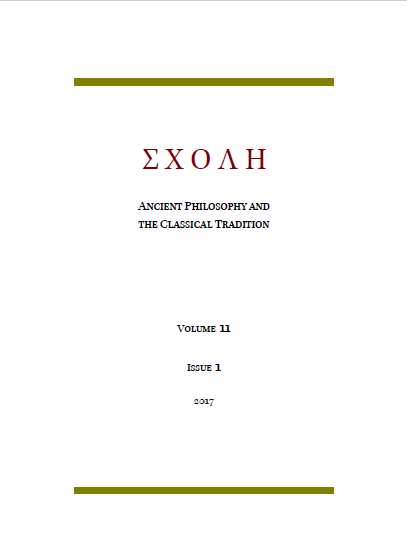NO MORE THIS THAN THAT: SKEPTICAL IMPRESSION OR PYRRHONIAN DOGMA?
NO MORE THIS THAN THAT: SKEPTICAL IMPRESSION OR PYRRHONIAN DOGMA?
Author(s): Necip Fikri AlicanSubject(s): Epistemology, Ancient World, Ancient Philosphy, Analytic Philosophy
Published by: Новосибирский государственный университет
Keywords: Pyrrhonism; skepticism; truth; assent; belief; equipollence; suspension of judgment;
Summary/Abstract: This is a defense of Pyrrhonian skepticism against the charge that the suspension of judgment based on equipollence is vitiated by the assent given to the equipollence in question. The apparent conflict has a conceptual side as well as a practical side, examined here as separate challenges with a section devoted to each. The conceptual challenge is that the skeptical transition from an equipollence of arguments to a suspension of judgment is undermined either by a logical contradiction or by an epistemic inconsistency, perhaps by both, because the determination and affirmation of equipollence is itself a judgment of sorts, one that is not suspended. The practical challenge is that, independently of any conceptual confusion or contradiction, suspending judgment in reaction to equipollence evinces doxastic commitment to equipollence, if only because human beings are not capable of making assessments requiring rational determination without believing the corresponding premises and conclusions to be true. The two analytic sections addressing these challenges are preceded by two prefatory sections, one laying out the epistemic process, the other reviewing the evidentiary context. The response from the conceptual perspective is that the suspension of judgment based on equipollence is not a reasoned conclusion adopted as the truth of the matter but a natural reaction to an impression left by the apparently equal weight of opposing arguments. The response from the practical perspective is that the acknowledgment of equipollence is not just an affirmation of the equal weight of arguments but also an admission of inability to decide, suggesting that any assent, express or implied, is thrust upon the Pyrrhonist in a state of epistemic paralysis affecting the will and the intellect on the matter being investigated. This just leaves a deep disagreement, if any, regarding whether equipollence is an inference based on discursive activity or an impression coming from passive receptivity. But this, even if resolved in favor of the critic (which it need not and ought not be), is not the same as confusion or inconsistency on the part of the Pyrrhonist, the demonstration of which is the primary aim of this paper.
Journal: ΣΧΟΛΗ. Философское антиковедение и классическая традиция
- Issue Year: XI/2017
- Issue No: 1
- Page Range: 7-60
- Page Count: 54
- Language: English

